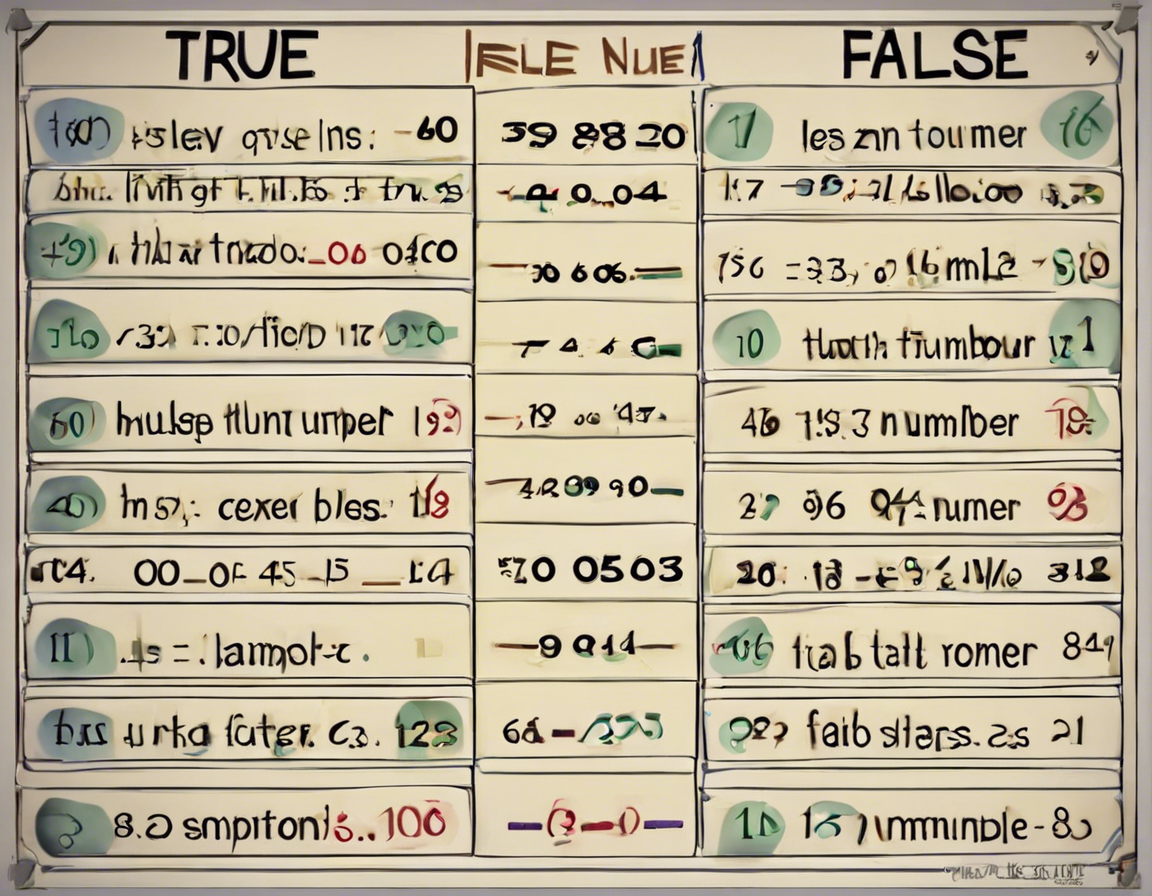When it comes to the world of numbers, things can get a bit confusing. Different types of numbers exist, each with its own set of characteristics and properties. Two common types of numbers that often cause confusion are whole numbers and natural numbers. People often wonder if all whole numbers are also classified as natural numbers. In this article, we will delve into the definitions of these two types of numbers, their similarities, differences, and provide clarity on whether all whole numbers are indeed natural numbers.
Understanding Natural Numbers
Let’s start by understanding what natural numbers are. Natural numbers are the set of positive integers that begin from 1 and continue indefinitely. In mathematical terms, the set of natural numbers is denoted as N = {1, 2, 3, 4, 5, …}. These numbers are used for counting and ordering, representing the quantity of objects or entities. Natural numbers do not include zero or any negative numbers; they are positive integers starting from 1.
Exploring Whole Numbers
On the other hand, whole numbers include all the natural numbers along with zero. The set of whole numbers is denoted as W = {0, 1, 2, 3, 4, …}. In essence, whole numbers are the non-negative counterparts of natural numbers. Whole numbers also start from zero and continue indefinitely with no fractions or decimals included.
Relationship Between Whole Numbers and Natural Numbers
Given these definitions, we can conclude that every natural number is indeed a whole number. Since natural numbers are a subset of whole numbers, every positive integer that belongs to the set of natural numbers also falls under the set of whole numbers. However, not all whole numbers are natural numbers due to the inclusion of zero in the set of whole numbers. Zero is not considered a natural number because natural numbers begin from 1 onwards.
Key Differences Between Natural Numbers and Whole Numbers
To summarize and highlight the key differences between natural numbers and whole numbers, consider the following points:
Natural Numbers
- Start from 1 and continue indefinitely.
- Do not include zero or any negative integers.
- Denoted as N = {1, 2, 3, 4, 5, …}.
Whole Numbers
- Include zero along with all natural numbers.
- Start from 0 and continue indefinitely.
- Denoted as W = {0, 1, 2, 3, 4, …}.
FAQ: Frequently Asked Questions
Here are some frequently asked questions related to the distinction between natural numbers and whole numbers:
1. Can zero be considered a natural number?
No, zero is not considered a natural number. Natural numbers begin from 1 onwards, while zero is included in the set of whole numbers.
2. Are negative numbers part of whole numbers?
No, whole numbers only include non-negative integers, starting from zero and counting upwards.
3. Do natural numbers include decimals or fractions?
No, natural numbers are only positive integers and do not include decimals, fractions, or negative numbers.
4. Why is zero included in whole numbers but not in natural numbers?
Zero is included in whole numbers to represent the absence of objects or quantity, while natural numbers are used for counting objects starting from one.
5. Are whole numbers and counting numbers the same thing?
Whole numbers include zero along with the positive integers, while counting numbers refer specifically to the set of natural numbers used for counting objects.
In conclusion, while every natural number is a whole number, the inclusion of zero in whole numbers sets them apart. Understanding the distinctions between these types of numbers is fundamental in mathematics and lays the foundation for more complex mathematical concepts.
